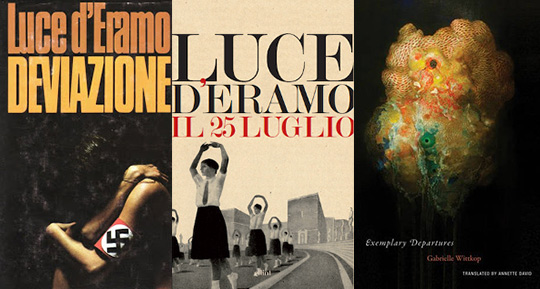Having managed to sidestep Ferrante’s Neapolitan novels all year, I did, however, enjoy two Italian writers greatly.
In the early 1950s, the Italian Luce D’Eramo (1925- 2001) wrote a series of unusual short stories that were first published in journals by the likes of Alberto Moravia and later collected under the evocative if rather literal title of Racconti Quasi di Guerra [Almost Stories of War]. In the first of these she published, ‘Idilli’, we hear the alternating accounts of a young couple living a precarious life as casual labourers on the outskirts of a war-torn city, in a style shorn of every embellishment but nonetheless poetic in its sparseness. Another, ‘Straniera’, is the first-person narrative of a migrant worker in Nazi Germany. We see her strategies of survival: forging medical letters, exchanging contraband cigarettes for bread, and stealing books from burning libraries, until she (nearly) gets caught for defaming the Reich. In the now iconic ‘Il 25 luglio’, the young narrator discovers that Mussolini has been arrested and fascism has fallen.
These, and other stories from her entire career, have now been collected in Tutti I racconti (2014); I’m working my way through the later ones now, and am surprised that d’Eramo, who is probably best known for her novel Deviazione, a devastating account of the narrator’s adolescent infatuation—and subsequent disillusion—with Nazism, hasn’t yet been translated into English, and I hope that someone will soon translate at least one story from this collection for Asymptote. READ MORE…

